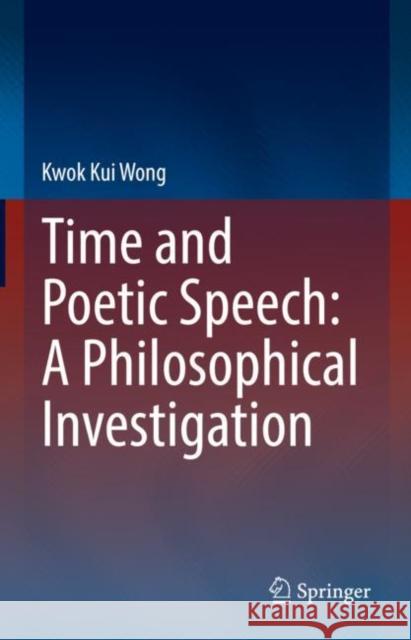Time and Poetic Speech: A Philosophical Investigation » książka
Time and Poetic Speech: A Philosophical Investigation
ISBN-13: 9783031124549 / Angielski / Twarda / 2022 / 188 str.
Time and Poetic Speech: A Philosophical Investigation
ISBN-13: 9783031124549 / Angielski / Twarda / 2022 / 188 str.
(netto: 421,70 VAT: 5%)
Najniższa cena z 30 dni: 424,07
ok. 16-18 dni roboczych.
Darmowa dostawa!
This book analyzes the relation between the flow time and poetic speech in drama and rhetoric. It begins with the classical understanding of time as flux, and its problems and paradoxes entailing from Aristotle, Augustine, Kant and Husserl. The reader will see how these problems unfold and find resolutions through dramatic speech and rhetoric which has an essential relation to the flow of time. It covers elements in poetic speech such as affect, rhythm, metaphor, and syntax. It uses examples from classical rhetorical theories by Aristotle, Cicero, Quintilian, dramatic speeches from Shakespeare, as well as other modern dramatic texts by Chekhov, Beckett, Jelinek and Sarah Kane. This book appeals to students and academic researchers working in the philosophical fields of aesthetics and phenomenology as well those working in theater and the performing arts.
This book analyzes the relation between the flow time and poetic speech in drama and rhetoric. It begins with the classical understanding of time as flux, and its problems and paradoxes entailing from Aristotle, Augustine, Kant and Husserl. The reader will see how these problems unfold and find resolutions through dramatic speech and rhetoric which has an essential relation to the flow of time. It covers elements in poetic speech such as affect, rhythm, metaphor, and syntax. It uses examples from classical rhetorical theories by Aristotle, Cicero, Quintilian, dramatic speeches from Shakespeare, as well as other modern dramatic texts by Chekhov, Beckett, Jelinek and Sarah Kane. This book appeals to students and academic researchers working in the philosophical fields of aesthetics and phenomenology as well those working in theater and the performing arts.











